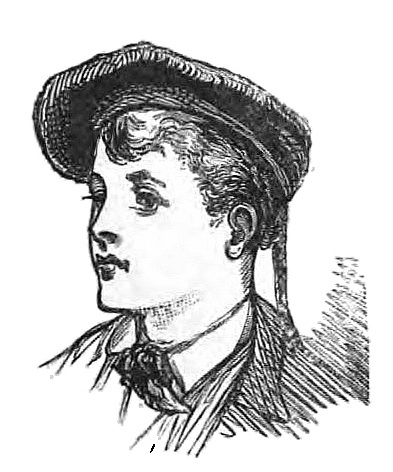Gordon Stables
"In the Land of the Great Snow Bear"
"A Tale of Love and Heroism"
Chapter One.
Dunallan Towers.
Even in the days of his boyhood—I had almost said infancy—there seems to have been much in the character and habits of Claude Alwyn that is unusual in children so young.

Some people tell us that the qualities of mind, developed by the individual, depend entirely on the nature of his associates and associations in early youth. I am not prepared to deny that there is a great deal of truth in this statement. But the facts therein do not account for everything, for individuality is stamped on a child from his very birth, and the power for good or for evil of the accidental association of after life may mould in a great measure, but cannot alter this.
“Many men many minds.”
A true though trite old saying is that, and there were, no doubt, a great many different opinions concerning young Claude among those who dwelt in, or were in the habit of visiting at, Dunallan Towers.
From an old journal or diary, which has been handed to me by its writer, with full permission to make whatever use I choose of it, I have gleaned much information bearing on the boy’s character and peculiarities.
Dunallan Towers, now so gloomy and desolate, was once the happiest and the homeliest, and at the same time the gayest and brightest of all the many beautiful mansions that grace the banks of the winding Nith. This was shortly after the marriage of Lord Alwyn to the only daughter of an English baronet.
There were those, however, about the country-side who did not hesitate to say that Alwyn might have been content to take for himself a bride from among the many fair and high-born dames of the shire in which he lived.
“The goshawk should never mate wi’ the ringdove,” said one stern old Scottish lady, “nor the owl perch low in the nightingale’s bower. Our cauld Highland hills will hardly suit the dainty limbs of Alwyn’s bonnie English bride. Our wild forests are no’ like scented southern groves, and the roaring Nith is no’ the placid Thames. A’thing will be strange to her, everything foreign, wild, and queer. She’ll no’ stay lang. You’ll see! you’ll see! you’ll see.”
But if this proud and ancient dame really meant to give herself out as a prophetess, she proved to be a false one; only, to her credit be it said, she was the very first to call on the Lady of the Towers, as people named the bride of Lord Alwyn—the first to call, and the first to become one of her best and firmest friends.
As a bachelor hall, the Towers had been somewhat of a failure; all that was altered after Alwyn brought home his young wife—she looked so young, and in years, indeed, was little more than a girl.
But her easy, pleasant manner captivated every one; and, whether it were winter, with the snow on lawns and park, and ice on the river’s edge, or summer, with the roses all in bloom, and the wind sighing softly through the birch-clad glens, bright and happy faces never failed to encircle the dinner-table of our winsome Lady of the Towers.
There was great rejoicing throughout all the parish on the birth of Lord Alwyn’s heir. Village bells were rung, and a huge bonfire was lighted on the very top of the highest hill: a bonfire that could be seen from house and hut for leagues and leagues around.
...